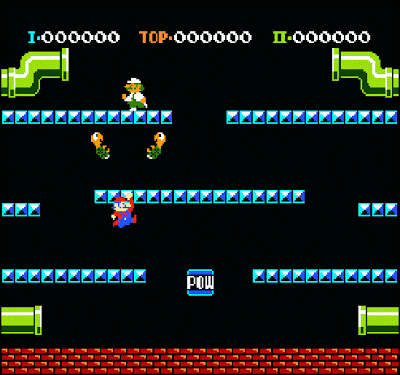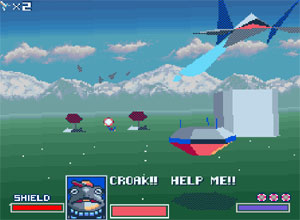Looking back at the man who unknowingly shaped my childhood.
Mr. Yamauchi died earlier this morning of pneumonia.
I don’t think I ever got the chance to dig into detail who Mr. Yamauchi really was. Yes, I know he ran Nintendo for over 50 years. Yes, I know he single-handedly saved the video games industry from disaster. But who was he, really? Now is the best time as ever to find out.

Mr. Yamauchi, 1927-2013
He was a simple college student studying law at Waseda University. His family was at the time in charge of a card-creating company known as Nintendo. In 1949, Yamauchi’s grandfather suffered from a stroke, leaving only the young Mr. Yamauchi to take over the company. After much debate, the transition took place, forcing Yamauchi to abandon his studies at university and instead focus on leading Nintendo. His grandfather died shortly afterward.
Yamauchi was known for his authoritative leading style. Soon after he took over, he fired many long-time employees of Nintendo, many of which had opposed his leadership. Over the course of a few decades, Nintendo slowly shifted from being some lowly little Japanese company to being one of the biggest in the nation. Under his leadership, Nintendo became the first Japanese company to manufacture playing cards in plastic. Nintendo’s joint venture with Disney in 1959 to put Disney characters on their playing cards led to such a large-scale success that it led the company to go public in 1962. In the next half a decade, Nintendo would continue to experiment with new ideas, including starting up a taxi company, a love hotel chain, an instant rice company, and, perhaps most importantly, a toy company.
Of course, most of these ideas became ultimate failures, and Nintendo’s stock diminished to almost a negligible amount. The only thing that became a success was Nintendo’s new toy line, which eventually replaced the playing cards Nintendo had been known for. Some of you may know a few of the products Nintendo engineered during that time, including the Ultra Hand and the Love Tester.
Nintendo’s transition to video games was, then, only natural after spending the past few years working on electronic toys. Yamauchi, after seeing the success of Atari, decided that they too wanted to enter the gaming industry with the Color TV Game 6. They entered the portable market with the Game & Watch series, which would become wildly successful for Nintendo, and gave Yamauchi enough confidence to continue work on video games. Arcade hits like Donkey Kong and Mario Bros. were also created during this time.

Yamauchi helped shape arcade hits like these.
The Famicom was released in 1983 and was a huge hit for Nintendo, selling several million units in a matter of months. Yamauchi, now wanting to enter the American video games industry, asked Atari if they could help with marketing and distribution. However, controversy over Nintendo’s rights over the production of Donkey Kong halted the deal. Good thing, too; not even a year later, the great video game crash of 1983 occurred, wiping out the entirety of the video games market in America, Atari included.
Nintendo released the Famicom in 1985 under the name “Nintendo Entertainment System” in America, in hopes that it would shave off the negative views the public had on video games after the crash. To further avoid a second crash, Yamauchi adopted a strict licensing rule that restricted third-parties to developing only 5 games per year. Furthermore, Yamauchi created three in-house teams to compete with each other, hoping that such competition would lead to better games. All of these steps taken, Nintendo easily became the greatest video games company of the time, with the NES becoming a wild success, and games like Metroid and Super Mario Bros. becoming instant classics.
And Nintendo would go on to fight its competitors, next with the Game Boy, then with the Super Nintendo Entertainment System. The company expanded to accommodate more in-house developers, and as a result created huge hits like Star Fox and Donkey Kong Country. In fact, Nintendo became so successful that it almost had a monopoly in America, and the federal government had to order the Big N to lower the prices of their games and hardware.

The SNES was home to many a influential game.
Eventually, things would start slowing down for the Nintendo. The Virtual Boy was a financial disaster, and the Nintendo 64, while still proving profitable for Nintendo, was only a marginal success, especially compared to the newly created PlayStation. Yamauchi was all to blame for the Nintendo 64’s backward-thinking philosophy. He hoped to make the Nintendo 64 a harder platform to develop for in order to shoo away shovelware. Of course, things didn’t go his way.
The GameCube was Yamauchi’s attempt to bring back the developers he lost with the Nintendo 64 with a better development environment and a focus on games (whereas Sony and Microsoft added DVD and CD-ROMs to their consoles). In 2002, Yamauchi stepped down and was succeeded by Satoru Iwata. He continued to advise Nintendo through the board though, and through that he was able to somewhat influence Nintendo’s directions until he died on September 19, 2013.
We will remember Yamauchi for many things. Chances are, if you grew up with video games, you’ve been influenced by Yamauchi’s decisions. Yes, sometimes they may seem rash, sometimes unexplainably stupid, but this was the guy who saved the video games industry. This was the man who, through in-house competition, breeded games like Super Mario Bros. and Donkey Kong Country. This was the man who transformed Nintendo into what we know of today, and as president of my favorite video games company for over 50 years, I cannot but feel saddened by his passing. May Mr. Yamauchi rest in peace, and may we forever remember him for the great things he did for the industry we all know and love.
![Amazing Spider-Man Finale Features New [SPOILER] Costume](../../../../../../assets1.ignimgs.com/2018/06/01/untitled-br-1527892808294_small.jpg)